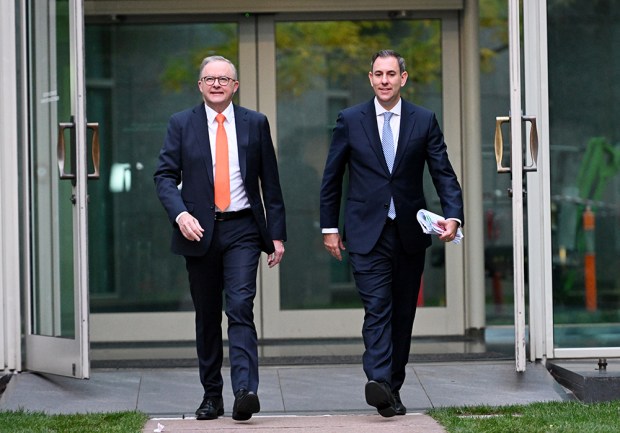In 2023, a coal mine was blocked for the first time under federal environmental law. Clive Palmer’s Central Queensland Coal Project was thwarted under a 1999 Act over concerns it would damage coastal habitats and the nearby Great Barrier Reef.
The decision came three months after the Queensland Land Court refused to approve Palmer’s Galilee coal mine because it would harm the environment and, in a first for a climate-change-related action, erode human rights.
Prime Minister Anthony Albanese’s government in August effectively torpedoed Regis Resources’s $1 billion McPhillamys Gold Project in New South Wales by issuing an ‘Indigenous heritage protection order’ after Wiradjuri traditional owners demanded the headwaters and the springs of the Belubula River be protected.
Activists have frustrated several multi-billion-dollar LNG projects such that, Australia, the world’s largest gas exporter, is expected to import gas for the first time to stem shortages along the east coast linked to depleting Bass Strait reserves.
The Fair Work Commission in August told three mining companies in New South Wales to engage in multi-employer bargaining. The Albanese government is pushing joint-enterprise agreements onto the resources sector, which is likely to boost costs and escalate the risk of industry-wide industrial action.
The Greens want a ‘climate trigger’ in environmental laws that would require special approval for ventures generating a minimum level of carbon emissions. The Institute of Public Affairs estimates the Greens’ trigger could jeopardise $227 billion of investment.
These are some of the milestone decisions and dangers thwarting mining exports and thus eroding a key advantage underpinning Australia’s high living standards; that of a small population living on a mineral-rich continent. Of exports of $673 billion in 2023, $406 billion were derived from resources and energy. One pointer to the unquantifiable amount of export earnings squandered is the Minerals Council of Australia, which reckons Australia is shooing away mining investment worth $68 billion every year.
The export sabotage, which creates risks for Australia, extends beyond mining. Harmful too are steps to impede the education sector, the fourth-biggest export industry, which reduce Australia’s advantage of being an educated, English-speaking country where people want to live and study.
Education exports of $48 billion in 2023 – that’s how to see the fees universities charge foreigners and the money these students spend here – are embroiled in backlashes against immigration boosting housing costs and chancellors prioritising money over Australian students.
The federal government has ordered the biggest city universities and private colleges to cut the number of new foreign students by 53,000, or 16 per cent, to 270,000 by next year compared with 2023 levels. While these students could attend smaller and regional universities, these institutions sit outside the top-100 world rankings and hold less appeal. An estimated $14 billion in foreign earnings is at risk.
Other export damage encompasses live animal and beef exports. A decades-long campaign pressured the Albanese government this year to decree an end to the live sheep trade from 2028. Trade in cattle, sheep and other animals was worth $1.3 billion in 2022-23, from $2.3 billion five years earlier.
The better indication of the cost of protests against the foreign slaughter and travel conditions of livestock, however, is the departure of 640,000 sheep last year compared with the five million sheep shipped out annually in the 1990s and early 2000s. Fringe and contested claims of cruelty have thus torpedoed export earnings that could exceed $20 billion a year.
To widen the hit to farmers, local activists are using EU reforestation laws to threaten beef exports worth $11 billion in 2023. Claims that Australia is a ‘deforestration hotspot’ like Brazil jeopardise beef sales to the EU where new laws aim to impede imports linked to the destruction of Amazon rainforests. The danger is other countries might follow any EU ban on Australian beef.
The economic significance of exports is they earn the foreign exchange that allows a country to import. Four consequences stand out when impeding exports that comprise about 23 per cent of GDP (though their contribution is measured against imports as ‘net exports’).
One is that lost export earnings mean slower economic growth and fewer jobs.
Another cost is foregone government revenue. Iron ore, coal and gas – the three largest export industries in descending order – contribute more than $70 billion annually in taxes and royalties, the Australian Resources and Energy Employer Association calculates.
A third is reduced exports hurt the trade balance that feeds into the balance on the current account, the widest measure of a country’s interaction with the world. Both balances help set the Australian dollar. Impeding exports thus risks a currency crisis.
While a lower dollar helps exporters, it spells a drop in living standards because imports cost more, something that can boost inflation and interest rates.
Last, restricting exports is likely to add to Australia’s gross foreign debt, which at 110 per cent of GDP is high globally. This debt can be seen as the accumulation of Australia’s past current-account deficits less surpluses.
From 1974 to 2019, Australia recorded uninterrupted current-account shortfalls. In recent years, however, Australia has mostly posted surpluses. But if deficits become the norm again – three of the past four quarters were shortfalls – at some point Australia’s foreign debt will reach levels where foreigners will baulk at lending more money.
Hindrances on exporters extent to the elevated interest rates, higher energy prices, increased red tape, rising taxes, staff shortages, stricter compliance requirements and tougher green demands that burden all businesses. Australia is risking its prosperity by sabotaging its export potential. It won’t be easy or quick to undo the damage when the cost of the self-harm manifests.
Much export activity is unimpeded, to be sure, and price movements often matter more to total export earnings than volumes, which is where the hindrances hit. Many government decisions support exporters – the federal government just approved the expansion of three coal mines in New South Wales that had faced environmental legal threats. Some of the grievances driving export restrictions are valid. Most people would agree that exporters need some policing, to prevent another Rio Tinto-like destruction of 46,000-year-old Aboriginal caves.
But Australia needs to better weigh the costs and benefits of forfeiting export earnings. As trade protectionism is rising, commodity prices are dropping and Australia’s economy has stalled, now is a bad time to let animal, cultural and environmental campaigners add to their victories against exporters.
Got something to add? Join the discussion and comment below.
You might disagree with half of it, but you’ll enjoy reading all of it. Try your first month for free, then just $2 a week for the remainder of your first year.













